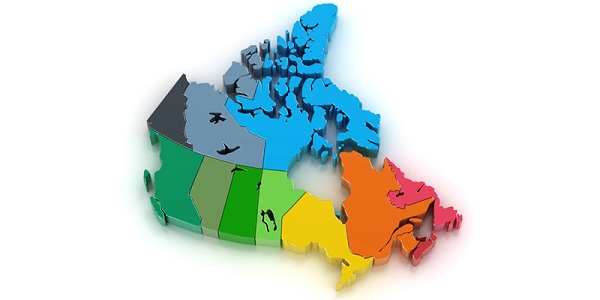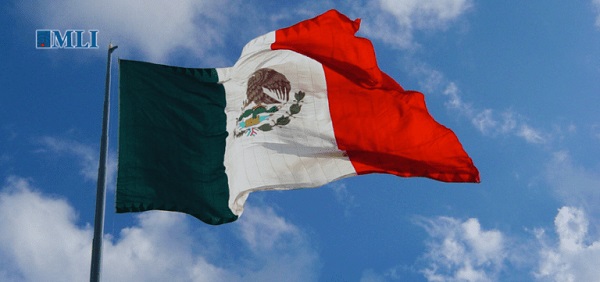News
Sylvan Lake will develop huge sports and recreation park

From the Town of Sylvan Lake
Conceptual Design for a Future Sports and Recreation Park Approved

Town Council has approved a Conceptual Design for a future recreation and sports field – Pogadl Park. The Concept Design provides a general overview of how the site could be designed, and was developed after extensive public engagement activities and events with local user groups and the community as a whole.
The Town of Sylvan Lake will take a phased approach to construction, and is committed to community collaboration and fiscal responsibility.
“One thing that is important to keep in mind is – this is a long-term plan with incremental, phased development. Once adopted, actual construction will take years, and will rely on community support, partnerships, and possible grant opportunities. The Design Concept for Pogadl Park may change over time, as the Town identifies opportunities and challenges, partnerships, as well as collects public feedback.” – Mayor Sean McIntyre
The next step is to provide Town Council project plan for “Phase One” of construction, which is funded through the 2019 Capital Budget. The Town of Sylvan Lake is also seeking grant funding and sponsorship opportunities to help offset the costs.
Identification of a location for new baseball diamonds, was a Council Strategic Priority 2013 – 2017, and the 2018 – 2021 Council Strategic Plan identifies “the complete design, and construction of Pogadl Park, Phase 1, including campgrounds, ball diamonds, soccer fields, washrooms, and parking lot,” as a priority. The current baseball diamonds, located at Four Seasons Park, were constructed in the mid 1980s; the park is unable to expand due to location restrictions, and given the proximity to an arterial road is a safety concern.
For more information, the public is invited to visit our Pogadl Park project page at www.sylvanlake.ca/sportspark
Pogadl Park Backgrounder

- In 2016, members of the Pogadl family generously donated 20 acres of land to the Town of Sylvan Lake. In conjunction with the donation, the Town purchased an additional 54 acres of land and received 6 acres as a Municipal Reserve contribution, for the development of a future, 80 acre, sport and recreation park to replace the aging sporting amenities within the existing Four Seasons Park.
- A 2016 land appraisal identifies the market value for the lands at $20,000 per acre, which is the price the Town paid for the 54 acres.
- Based on population thresholds identified in the Town of Sylvan Lake’s Recreation, Parks, and Open Spaces Master Plan, the following outdoor amenities are at a population deficit, as of 2018:
o Baseball diamonds; o Soccerpitches;
o TennisCourts; o Playgrounds.*Note: newer or emerging sports, such as Pickleball, were not included in the 2010 Master Plan, but have been identified as a required amenity as per the 2018 user group and public engagement sessions for Pogadl Park.
- Based on population thresholds identified in the Town of Sylvan Lake’s Recreation, Parks, and Open Spaces Master Plan, the following outdoor amenities are at a population deficit, as of 2018:
• Following a discussion with the executive of the Sylvan Lake Spray Park Committee, and based on the merits of featuring a spray park at a location considered a “hub” for outdoor activities, the approved Conceptual Design also recommends a relocation to Pogadl Park.
Business
Broken ‘equalization’ program bad for all provinces

From the Fraser Institute
By Alex Whalen and Tegan Hill
Back in the summer at a meeting in Halifax, several provincial premiers discussed a lawsuit meant to force the federal government to make changes to Canada’s equalization program. The suit—filed by Newfoundland and Labrador and backed by British Columbia, Saskatchewan and Alberta—effectively argues that the current formula isn’t fair. But while the question of “fairness” can be subjective, its clear the equalization program is broken.
In theory, the program equalizes the ability of provinces to deliver reasonably comparable services at a reasonably comparable level of taxation. Any province’s ability to pay is based on its “fiscal capacity”—that is, its ability to raise revenue.
This year, equalization payments will total a projected $25.3 billion with all provinces except B.C., Alberta and Saskatchewan to receive some money. Whether due to higher incomes, higher employment or other factors, these three provinces have a greater ability to collect government revenue so they will not receive equalization.
However, contrary to the intent of the program, as recently as 2021, equalization program costs increased despite a decline in the fiscal capacity of oil-producing provinces such as Alberta, Saskatchewan, and Newfoundland and Labrador. In other words, the fiscal capacity gap among provinces was shrinking, yet recipient provinces still received a larger equalization payment.
Why? Because a “fixed-growth rule,” introduced by the Harper government in 2009, ensures that payments grow roughly in line with the economy—even if the gap between richer and poorer provinces shrinks. The result? Total equalization payments (before adjusting for inflation) increased by 19 per cent between 2015/16 and 2020/21 despite the gap in fiscal capacities between provinces shrinking during this time.
Moreover, the structure of the equalization program is also causing problems, even for recipient provinces, because it generates strong disincentives to natural resource development and the resulting economic growth because the program “claws back” equalization dollars when provinces raise revenue from natural resource development. Despite some changes to reduce this problem, one study estimated that a recipient province wishing to increase its natural resource revenues by a modest 10 per cent could face up to a 97 per cent claw back in equalization payments.
Put simply, provinces that generally do not receive equalization such as Alberta, B.C. and Saskatchewan have been punished for developing their resources, whereas recipient provinces such as Quebec and in the Maritimes have been rewarded for not developing theirs.
Finally, the current program design also encourages recipient provinces to maintain high personal and business income tax rates. While higher tax rates can reduce the incentive to work, invest and be productive, they also raise the national standard average tax rate, which is used in the equalization allocation formula. Therefore, provinces are incentivized to maintain high and economically damaging tax rates to maximize equalization payments.
Unless premiers push for reforms that will improve economic incentives and contain program costs, all provinces—recipient and non-recipient—will suffer the consequences.
Authors:
National
Liberals, NDP admit closed-door meetings took place in attempt to delay Canada’s next election

From LifeSiteNews
Pushing back the date would preserve the pensions of some of the MPs who could be voted out of office in October 2025.
Aides to the cabinet of Prime Minister Justin Trudeau confirmed that MPs from the Liberal and New Democratic Party (NDP) did indeed hold closed-door “briefings” to rewrite Canada’s elections laws so that they could push back the date of the next election.
The closed-door talks between the NDP and Liberals confirmed the aides included a revision that would guarantee some of its 28 MPs, including three of Trudeau’s cabinet members, would get a pension.
Allen Sutherland, who serves as the assistant cabinet secretary, testified before the House of Commons affairs committee that the changes to the Elections Act were discussed in the meetings.
“We attended a meeting where the substance of that proposal was discussed,” he said, adding that his “understanding is the briefing was primarily oral.”
According to Sutherland, as reported by Blacklock’s Reporter, it was only NDP and Liberal MPs who attended the secret meetings regarding changes to Canada’s Elections Act via Bill C-65, An Act to Amend the Canada Elections Act before the bill was introduced in March.
As reported by LifeSiteNews before, the Liberals were hoping to delay the 2025 federal election by a few days in what many see as a stunt to secure pensions for MPs who are projected to lose their seats. Approximately 80 MPs would qualify for pensions should they sit as MPs until at least October 27, 2025, which is the newly proposed election date. The election date is currently set for October 20, 2025.
Sutherland noted when asked by Conservative MP Luc Berthold that he recalled little from the meetings, but he did confirm he attended “two meetings of that kind.”
“Didn’t you find it unusual that a discussion about amending the Elections Act included only two political parties and excluded the others?” Berthold asked.
Sutherland responded, “It’s important to understand what my role was in those meetings which was simply to provide background information.”
Berthold then asked, “You nevertheless suggested amendments to the legislation including a change of dates?”
“My role was to provide information,” replied Sutherland, who added he could not provide the exact dates of the meetings.
MPs must serve at least six years to qualify for a pension that pays $77,900 a year. Should an election be called today, many MPs would fall short of reaching the six years, hence Bill C-65 was introduced by the Liberals and NDP.
The Liberals have claimed that pushing back the next election date is not over pensions but due to “trying to observe religious holidays,” as noted by Liberal MP Mark Gerretsen.
“Conservatives voted against this bill,” Berthold said, as they are “confident of winning re-election. We don’t need this change.”
Trudeau’s popularity is at a all-time low, but he has refused to step down as PM, call an early election, or even step aside as Liberal Party leader.
As for the amendments to elections laws, they come after months of polling in favour of the Conservative Party under the leadership of Pierre Poilievre.
A recent poll found that 70 percent of Canadians believe the country is “broken” as Trudeau focuses on less critical issues. Similarly, in January, most Canadians reported that they are worse off financially since Trudeau took office.
Additionally, a January poll showed that 46 percent of Canadians expressed a desire for the federal election to take place sooner rather than the latest mandated date in the fall of 2025.
-

 Brownstone Institute2 hours ago
Brownstone Institute2 hours agoThe Most Devastating Report So Far
-

 Economy14 hours ago
Economy14 hours agoCOP 29 leaders demand over a $1 trillion a year in climate reparations from ‘wealthy’ nations. They don’t deserve a nickel.
-

 Alberta12 hours ago
Alberta12 hours agoOn gender, Alberta is following the science
-

 Energy13 hours ago
Energy13 hours agoOttawa’s proposed emission cap lacks any solid scientific or economic rationale
-

 Bruce Dowbiggin1 hour ago
Bruce Dowbiggin1 hour agoCHL Vs NCAA: Finally Some Sanity For Hockey Families
-

 Brownstone Institute1 day ago
Brownstone Institute1 day agoFirst Amendment Blues
-

 Crime2 days ago
Crime2 days agoMexican cartels are a direct threat to Canada’s public safety, and the future of North American trade
-

 Alberta1 day ago
Alberta1 day agoAlberta mother accuses health agency of trying to vaccinate son against her wishes



